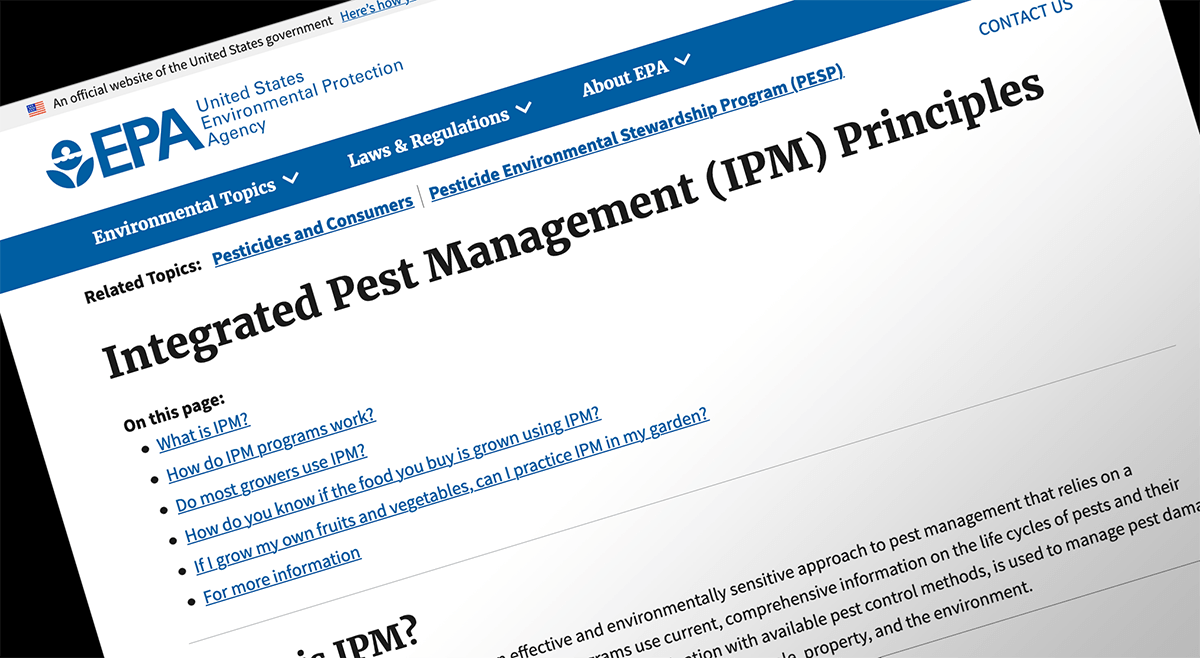Integrated Pest Management (IPM) is an effective and environmentally sensitive approach to pest management that relies on a combination of common-sense practices. IPM programs use current, comprehensive information on the life cycles of pests and their interaction with the environment. This information, in combination with available pest control methods, is used to manage pest damage by the most economical means, and with the least possible hazard to people, property, and the environment.
The IPM approach can be applied to both agricultural and non-agricultural settings, such as the home, garden, and workplace. IPM takes advantage of all appropriate pest management options including, but not limited to, the judicious use of pesticides. In contrast, organic food production applies many of the same concepts as IPM but limits the use of pesticides to those that are produced from natural sources, as opposed to synthetic chemicals.
Also, see other information at https://www.epa.gov/safepestcontrol/integrated-pest-management-ipm-principles which is also the source for the above definition.
IPM is applicable to conventional and organic production and is a foundation of pest management practices and requirements in the USDA National Organic Program. IPM is applicable to agriculture, non-crop sites, and to the management of structural pests. IPM is frequently required when providing pest control services on public property sites as well as many private-sector sites.
For more information on specific Neudorff products, choose your country below:
Click for Canada
Click for USA

